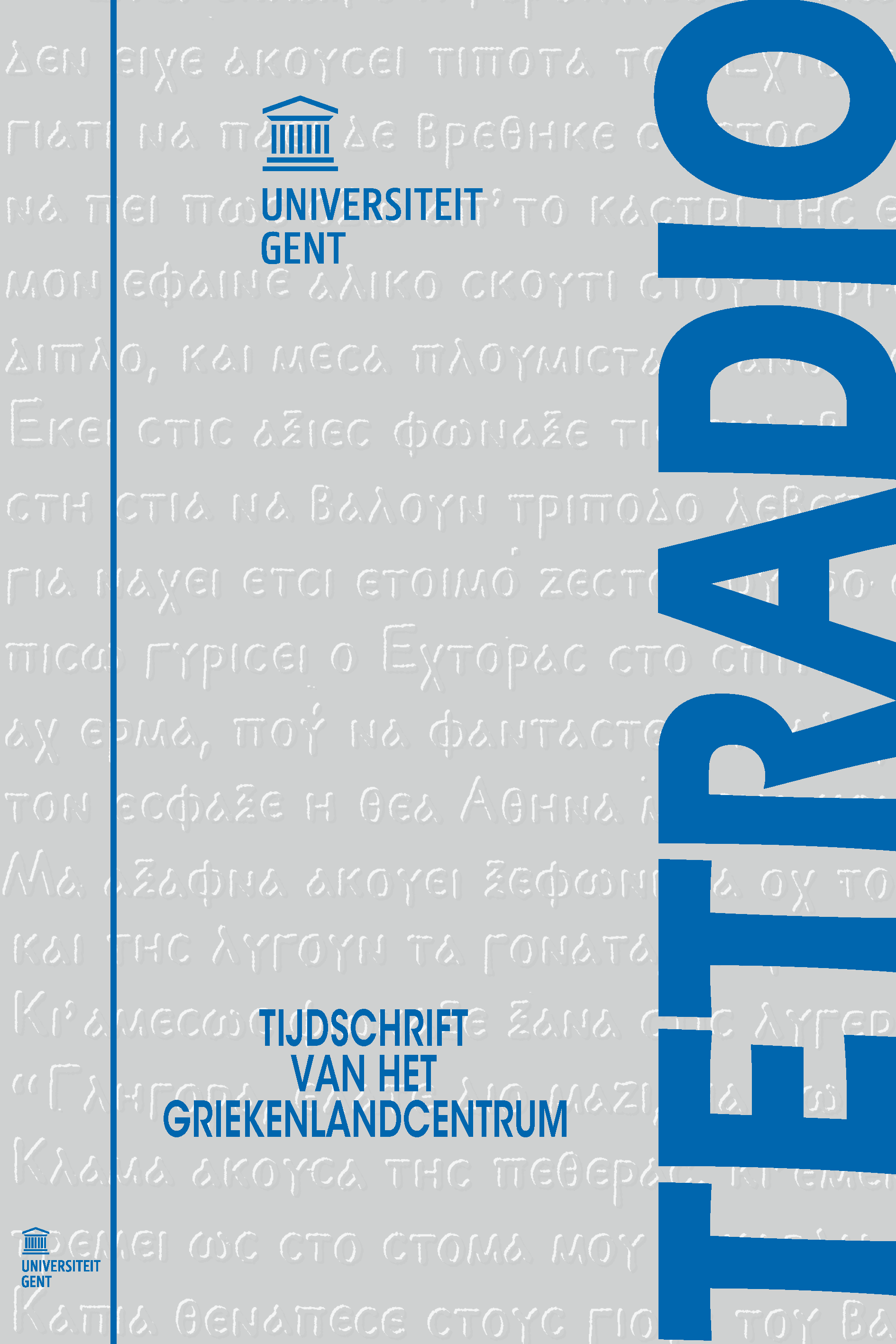“Geleende pluimen”: Grieks en Latijn in vertaling door de eeuwen heen
Abstract
In Cicero’s reflections on his translation of Demosthenes, he states that he did not translate as an interpreter but as an orator. Hieronymus did not translate the Bible word after word, but wanted to grasp its meaning. The “rederijker” (member of a Chamber of Rhetoric) Cornelis van Ghistele claimed in 1554 that he had translated Vergil’s Aeneid “retoryckelijck” (according to the conventions of the Chambers of Rhetoric) and as a “pleasant and worthy read”. He translates as a poet in the poetic form and the language and style that is typical of his own age, like before him Ausonius and after him Joost Van den Vondel, Alexander Pope, Christopher Logue and many others. This contribution zooms in on a select number of highlights and turning points from the Greek and Latin history of translation, both as target languages (especially Latin) and source languages (especially Greek), from Antiquity to the present, Livius Andronicus to Emily Wilson. It shows a colourful past and critically evaluates the current state of the field with an eye on the future. Translations are never a neutral way of passing on information. They always give an interpretation and are coloured by common attitudes of their own age. Nonetheless they are read as replacements of the original. Moreover, they function as ambassadors of a different culture and age. Also this final aspect is of importance now that the sense of studying Latin and Greek is being questioned more than ever.
How to Cite:
Verhelst, B., (2020) ““Geleende pluimen”: Grieks en Latijn in vertaling door de eeuwen heen”, Tetradio 29(1): 5, 121–146. doi: https://doi.org/10.21825/tetradio.91889
Downloads:
Download PDF
View PDF

